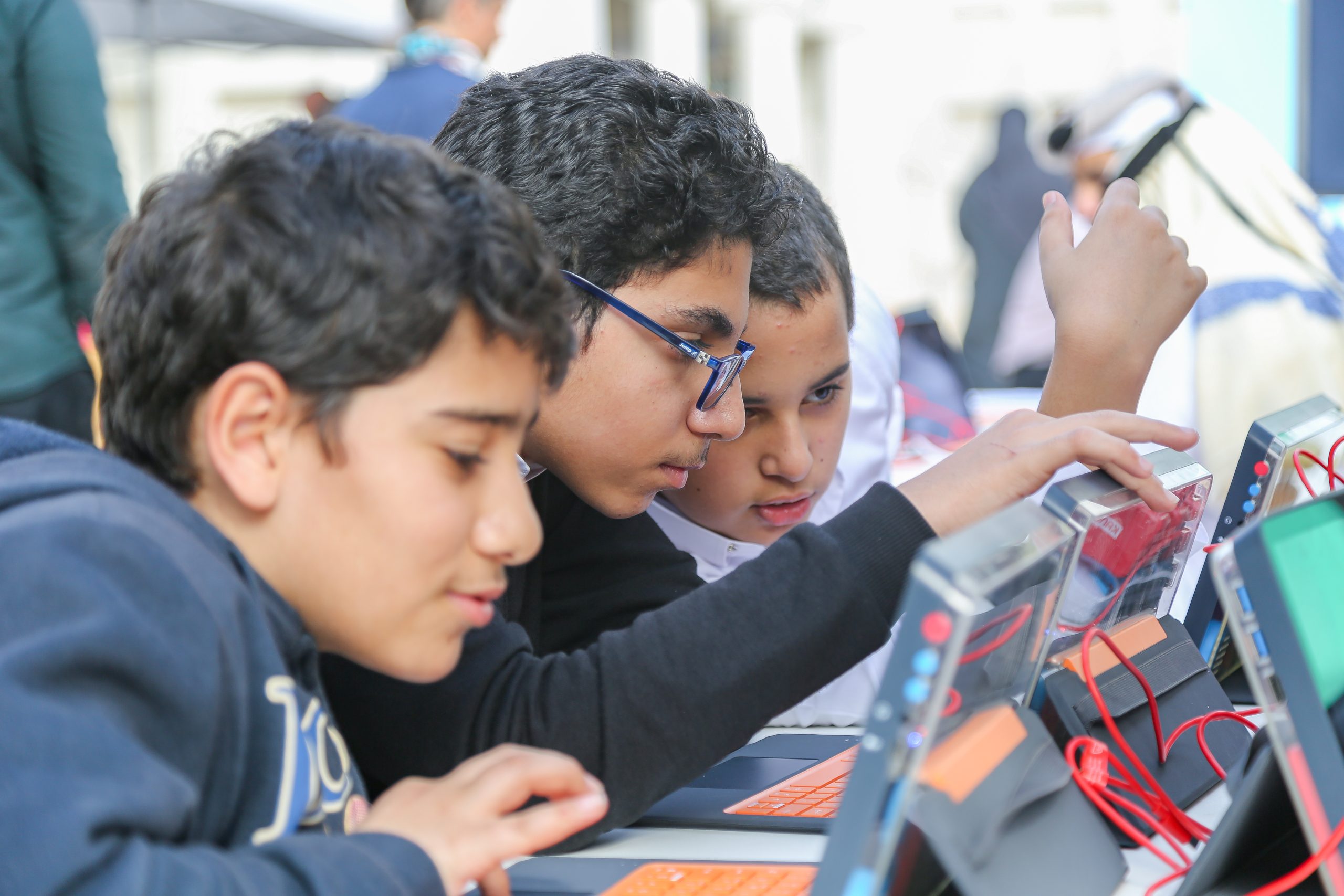The WISE 2023 summit is set to gather education providers in Doha from November 28-29 .
The impact of disrupted education during COVID-19 has seen a renewed demand for transformative education models. As the world constantly evolves, the importance of informal learning is often overlooked.
“Our future depends on our youth having access to meaningful education that empowers them with lasting knowledge and understanding,” says Shahd Dauleh, Learning Ecosystems Associate at the World Innovation Summit for Education (WISE), Qatar Foundation’s global education initiative.
“Opportunities that go beyond formal education and knowledge development, that are mentally stimulating and empowering, enable youth to unleash their best qualities and increase their likelihood of a better future.”
Against this background, WISE hosted the Doha Learning Days Festival in February, under the theme ‘youth empowerment’. The community came together to support this goal, showing that learning can happen both within and out of the classroom.
Partnering with education innovators
Through its research, WISE has highlighted new ways to reimagine education following the pandemic. One of the takeaways is the idea of learner agency, according to WISE, and allowing learners to tap into their own knowledge to discover solutions for their lives and communities. But also, for students and educators, alongside parents and school leaders, to become lifelong learners leading learning.
WISE collaborated with over 20 content partners to present a unique programme centered around innovative teaching strategies like place-based learning, storytelling, peer-to-peer learning, active experimentation, and simulations.
One of the school workshops was “Learning Sustainability Through Lego Serious Play”, which allowed students to visualise problems and solutions, as well as Hamad Bin Khalifa University’s Maker Majlis, which encouraged inquiry and self-reflection on sustainability education.
Students had an opportunity to learn design thinking from inspiring social entrepreneur Zubair Junjunia, Founder and CEO of ZNotes, which has reached over 4 million students globally since Junjunia started the community-driven online learning platform at age 16.
“Design thinking is used by high-tech corporations like Google to solve global problems. For students, it can be a tool to explore solutions in the local context for challenges they may confront. This is one of the ways design thinking helps creates learner agency,” he said.
Youth-led sessions
WISE built the festival around youth, with opportunities to lead their own sessions.
Students at Qatar Academy Al Wakra facilitated the “Financial Football” workshop, which featured a fast-paced game developed by Visa to educate youth on crypto and digital currencies, stocks, inflation, mortgages, personal data protection, and other aspects of financial literacy.
Visa worked with the Qatar Academy students for 18 months and for Doha Learning Days, encouraged them to use their knowledge to teach others.
“Peer learning is a very powerful tool,” said Carl Manlan, Visa’s Vice President, Inclusive Impact and Sustainability for Central and Eastern Europe, Middle East and Africa. “As we see from the interactions between those learning and the young men and women teaching the workshop – anyone, given the right tools, can share knowledge.”
Grade 11 student, Sultan Ali Abdullah, a workshop leader, said: “[Having students lead] allows us to cooperate and bounce ideas off each other. The fact that I can relay facts to my classmates empowers me. And we get to discuss important topics among ourselves.”
Abdulaziz Mohamed Al Kuwari, also in Grade 11, added: “We try to make it as fun and engaging as possible so all the students take part. We get to communicate with each other and strengthen important skills. What we learn here will help us in our future, when we reach college or find jobs, and develop the future of Qatar.”
With future empowerment as a goal, Swiss wealth manager, Julius Baer, a Strategic Partner of the festival, presented a masterclass on the fundamentals of investing, aiming to put students on an early path to financial independence.
When it comes to digital education, 12-year Kaeden Patel was in the remarkable position of helping his peers “Unlock [Their] Potential in the Metaverse”.
His father, Nimesh Patel, CEO of UK-based Kabuni, whose mission is to “educate with purpose”, observed that children have a natural curiosity, and even when using technology for the first time (in this case, virtual reality headsets), need fewer explanations than adults. Instead, the immersive experience engages all their senses as they actively learn.
Sharing knowledge, generating dialogue
WISE’s research and publications focus on a transformational agenda. By piloting innovation with local youth, the learning festival – set to become a yearly initiative – can lead to insights that inform curricula and policy recommendations.
“Innovation is strengthened and enabled by exchanging and sharing knowledge or best practices. In the case of Doha Learning Days, it helps fuel local knowledge and perspectives that can inform discussions at our global WISE summit,” says Dauleh.
WISE was established by the Qatar Foundation in 2009 under the leadership of its chairperson, Sheikha Moza bint Nasser.
WISE is an international, multi-sectoral platform for creative, evidence-based thinking, debate, and purposeful action in education.
The WISE 2023 summit is set to gather education providers in Doha from November 28-29 to collaboratively share ideas on solving pressing educational challenges, particularly for youth.







